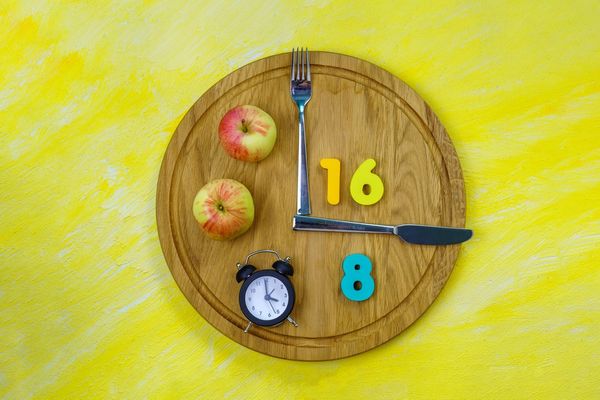For Lenore Katz, weight loss was something that only worked for other people. "I had tried every single diet," she says. "As a person who was a compulsive emotional eater, I lost weight but I always gained it back."
At 272 pounds, she was taking blood pressure medicine and a diuretic when her physician told her she might need cholesterol-lowering drugs as well. Ms. Katz decided to consult a nutritionist to get help with her weight and health. "I was very motivated," the New York woman says.
With that professional guidance, Ms. Katz began a plan to control portion size, change some of her food selections, and cut fats and salt. She and nutritionist Bonnie Taub-Dix, MA, RD, CDN, talked about her eating habits and beliefs. Ms. Katz also increased her physical activity.
Now, three years later, having just turned 60, she weighs 135 pounds, no longer takes either the blood pressure drug or the diuretic, and has reduced her cholesterol enough to avoid needing medication. A recent stress test was significantly better than when she was heavier. "It's made a tremendous change in my health and in my comfort level," Ms. Katz says.
Weight loss and much more
Nutritional counseling provides insight and support that often means the difference between losing pounds for a special occasion (and then gaining it back) or losing the weight for good.
In addition to battling obesity, nutritionists help people with a variety of other health concerns—including diabetes, heart disease, reflux, colitis, eating disorders, cancer, osteoporosis, anxiety/depression, celiac disease, pregnancy/nursing and food allergies. They also assist those who are trying to stop smoking or cope with menopausal symptoms, vegetarians wanting a balanced diet, bariatric surgery patients or anyone interested in eating more healthfully.
To address such varying needs, forget about the one-size-fits-all approach of many diets. "A registered dietitian (RD) can help develop an individualized nutrition plan, based on your lifestyle, physical activity and your daily activities," says Amy Jamieson-Petonic, MEd, RD, LD, LMT, manager of the Fairview Hospital Wellness Center in Cleveland, OH, and a spokesperson for the American Dietetic Association. She suggests thinking of the nutritionist as a health coach who aids you in setting goals and finding effective ways to achieve them.
That personalization is important, says Ms. Taub-Dix, the nutritionist who helped Ms. Katz. "It's very psychologically or emotionally driven sometimes. What I do is medical nutrition therapy—it's about where they're coming from." For example, a plan for a woman with children to feed has to incorporate that reality into the eating advice, as does one for someone who travels frequently, or works long hours away from home.
How nutrition counseling works
Many lifetime dieters, like Trish Rose-Malloy, are skeptical about seeing a nutritionist. "I had been on so many different kinds of diets," says the Pennsylvania woman. "I thought, 'I know what to do—I just don't do it. So why should I waste the money?'" A recommendation from someone she admired finally gave her the push to go.
In their first session, she and the nutritionist, whose credentials include RD (registered dietitian), CDE (certified diabetes educator) and LDN (licensed dietitian/nutritionist), talked about how, when and what Ms. Rose-Malloy ate and what she thought were her food downfalls. Her biggest surprise? "A lot of the things I thought I knew (from other diets) just got tossed out the window. She said you have to forget everything you've been told."
The analysis showed that Ms. Rose-Malloy wasn't eating at the right times for her body. Her plan now includes specific times when she must eat—even during meetings at work—and guidelines for the types of food for each meal and snack. "Once I started that diet plan, I wasn't hungry," she says.
The nutritionist also helped her re-tool her lunches—preparing containers in advance and skipping the greasy and sauce-laden offerings in her employer's cafeteria. Meals on her plan contain several elements that always must be consumed. "If I skip my fruit, I'm hungry in the afternoon," she says. She also received advice on lightening favorite recipes, such as meatloaf, that she and her husband enjoy for dinner.
Ms. Rose-Malloy visits the nutritionist every six to eight weeks. They talk about upcoming situations that might challenge her resolve and how to handle them. Over eight months, she's lost about 22 pounds, down from her starting weight of 202. "My goal is to be healthy, at whatever weight my body seems to settle at. Ideally, I'd like to lose another 30 pounds."
At age 43, with a family history of early heart disease and cancer, the overall health benefits of changing her eating are just as important. Her cholesterol and triglyceride levels have come down, with her total cholesterol dropping 30 to 40 points. She also does aerobic exercise twice a week, for 30 minutes each session.
"In my mind, I think I will always eat like this now," says Ms. Rose-Malloy. "Because the weight loss has been gradual, it's working."
Tips on seeing a nutritionist
- Anyone can use the title "nutritionist" and some states have no licensing or oversight of practitioners. Look for degree credentials (RD, LDN, CDN, CDE) from professional organizations such as the American Dietetic Association (ADA) and American College of Nutrition. Go to www.eatright.org to find an ADA-registered dietitian. Some doctors have nutrition certification, but, in general, physicians receive little nutrition education in medical school. For general dietary guidance, many people are considering holistic or homeopathic nutrition counselors.
- Food diaries or journals help track what you eat every day. These can be helpful in building a plan, or sticking to one, and may be as simple as jotting quick notes on a pad. "Very often it builds awareness," says Ms. Taub-Dix, a nutritionist and spokesperson for the American Dietetic Association. "I ask, 'Do you snack?' When they keep the diary, they see they're visiting the kitchen cabinet every hour."
- If you're an athlete or frequent exerciser, getting food advice may be important. "Physically active people have different nutrient requirements than a sedentary person, and good nutrition can also help them perform better," says Ms. Jamieson-Petonic, a nutritionist.
- Your individual situation determines how many sessions you may need. According to Ms. Taub-Dix, weight-loss patients are often seen for a longer time than others. Insurance might cover some fees; check with your insurer for specifics.







